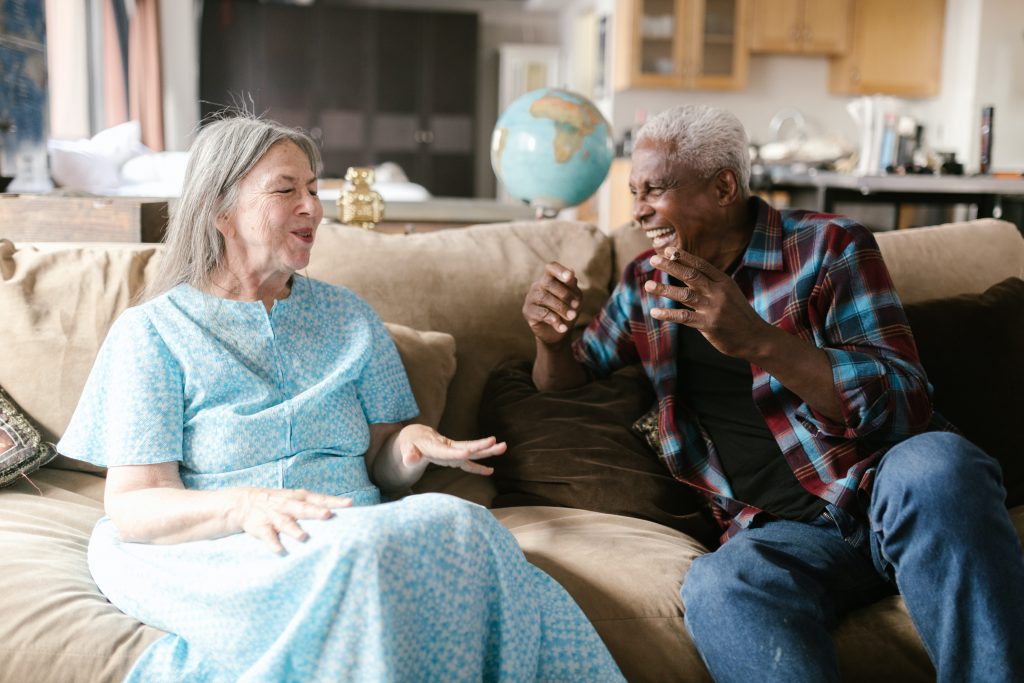LEARN SOMETHING NEW
Therapy Blog for Orem, Spanish Fork & South Jordan
In Couples Therapy, It’s Not About Placing Blame
Couples Therapy: Placing Blame
If you are new to the world of couples therapy, you might assume that a major part of counseling is going to be correctly placing blame for your conflicts. Maybe you imagine you’ll go to therapy together, and you’ll argue with the therapist in the room. Then, he will explain who is responsible for what. You’ll apologize and you’ll be good to go. Conflict resolved! Or is it?
In reality, couples therapy does not place a focus on the “blame game” in your relationship. In fact, the goal of couples therapy is to eliminate blame all together.
Today, you will learn about why blame does not play a part in marriage counseling. You’ll also learn how to move away from blame and move towards real conflict resolution in your relationship.
Playing the Blame Game
Blame is a common problem when it comes to conflict in relationships. In fact, it’s a natural reaction to place blame when something goes wrong.
While blame is common, it is not productive. Placing blame might give you or your partner a false sense of control. Blame might help to numb some of the pain of a difficult situation in your relationship. But placing blame does not help you or your spouse find a way to resolve conflict. (Related article: Why We Need to Stop Playing the Blame Game).
Blaming each other can also make it harder to take accountability and commit to changes in your relationship. As you blame each other for your frustrations, you miss an opportunity for vulnerability and connection. And you may find that the same conflicts just keep coming up over and over again. (Related article: How Couples Counseling Works)
Replace Blame with Connection
By now, you might begin to understand why blame is unproductive. But, what can you do instead? After all, there will inevitably be times when you and your partner hurt or disappoint each other. So, how can you respond in a way that doesn’t blame each other or become defensive?
Instead of focusing on placing blame, consider creating an opportunity for emotional connection. Blame is based in defensiveness. You want to defend your own actions and show that your partner is in the wrong. But, if you choose to connect emotionally instead and respond with empathy, the focus will be on understanding each other and your unique perspectives.
Let’s look at an example. You have asked your spouse to take out the trash one million times. Or, at least, it sure seems that way! And yet, the trash never seems to get taken out. You are frustrated and hurt. (Related article: Learning to Accept Your Partner’s Influence).
If you are stuck in the blame game, you might approach your spouse and say “You are ridiculous! You never take out the trash and I have asked you over and over. Maybe if you listened to me more, we wouldn’t fight so often.” And your spouse will probably respond defensively. They might say “Oh really? Well maybe I’d remember if you weren’t always nagging me. I am stressed and overwhelmed with work and you don’t even care!”
By now, you might see where this could spiral out of control. And you might have also noticed that the argument quickly escalated from the trash to much bigger, more frustrating problems.
So, how could you do it differently? Try a different approach. John Gottman, a relationship researcher, has said that “behind every complaint is a deep personal longing” (source). Use that to your advantage! Make this a chance to be vulnerable and to invite empathy from your partner.
In this scenario, you might instead decide to say “I am frustrated about the trash. We have talked a lot about the trash and how I need your help taking it out so it doesn’t pile up in the kitchen. And it seems like that’s not happening.”
This is a much softer approach! There is no defensiveness or blaming in this response. Instead, you are clearly communicating a need. And by discussing your emotions surrounding the issue, you are also inviting vulnerability.
This approach is much less likely to elicit a blaming, escalating response from your partner. They might say “oh wow, you are right. I am sorry. How can we fix this?”. They might open up about how stressed and overwhelmed they have been. Either way, there are opportunities for connection and understanding when we avoid placing blame. (Related article: Marriage Counseling: Promoting Partnership)
Couples Therapy Helps You Drop the Blame Game
Blame can be a hard habit to drop. Especially if you and your partner are used to that sort of conversation in your relationship. That’s where couples therapy can help. Your therapist can help you and your partner better understand your emotions and why you might respond the way that you do. Therapy can help you practice healthier responses and create more opportunities for connection.
Interested in improving your relationship? We are here to help. Begin couples therapy in Orem, South Jordan, or Spanish Fork.
Written By Lauren Adkins

